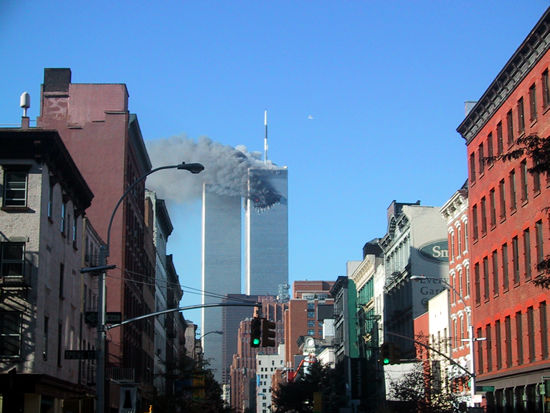
The aftermath of 9-11 still felt today, as Bush White House attempts to thwart investigation
“I saw papers that show the U.S. knew al-Qa’ida would attack cities with aeroplanes.” — Sibel Edmond, employee of the FBI
A former translator for the FBI with top-secret security clearance says she has provided information to the panel investigating the September 11 attacks which proves senior officials knew of al-Qa’ida’s plans to attack the U.S. with aircraft months before the strikes happened.
Sibel Edmond said the claim by U.S. National Security Adviser, Condoleezza Rice, that there was no such information was “an outrageous lie”.
In a report filed by The Independent’s Washington-based reporter Andrew Buncombe, Ms. Edmond goes on to say …
“I gave [the commission] details of specific investigation files, the specific dates, specific target information, specific managers in charge of the investigation. I gave them everything so that they could go back and follow up. This is not hearsay. These are things that are documented. These things can be established very easily … There was general information about the time-frame, about methods to be used … about people being in place and who was ordering these sorts of terror attacks … on major cities with skyscrapers.”
In a separate report filed by New York Times reporters Philip Shenon and David E. Sanger, the commission investigating the Septenber 11 attacks said that it was pressing the White House to explain why the Bush administration had blocked thousands of pages of classified foreign policy and counterterrorism documents from former President Bill Clinton’s White House files from being turned over to the panel’s investigators.
“We need to be satisfied that we have everything we have asked to see,” Al Felzenberg, a spokesman for the bipartisan 10-member commission, said. “We have voiced the concern to the White House that not all of the material the Clinton library has made available to us has made its way to the commission.”
Meanwhile, Daniel N. Nelson writing in Common Dreams addresses the issue of the U.S. defeat on Iraq, measured not simply by the number of dead and wounded, the incomplete destruction of enemy forces or infrastructure, or any single military disaster.
“Defeats don’t happen,” he writes. “They develop.”